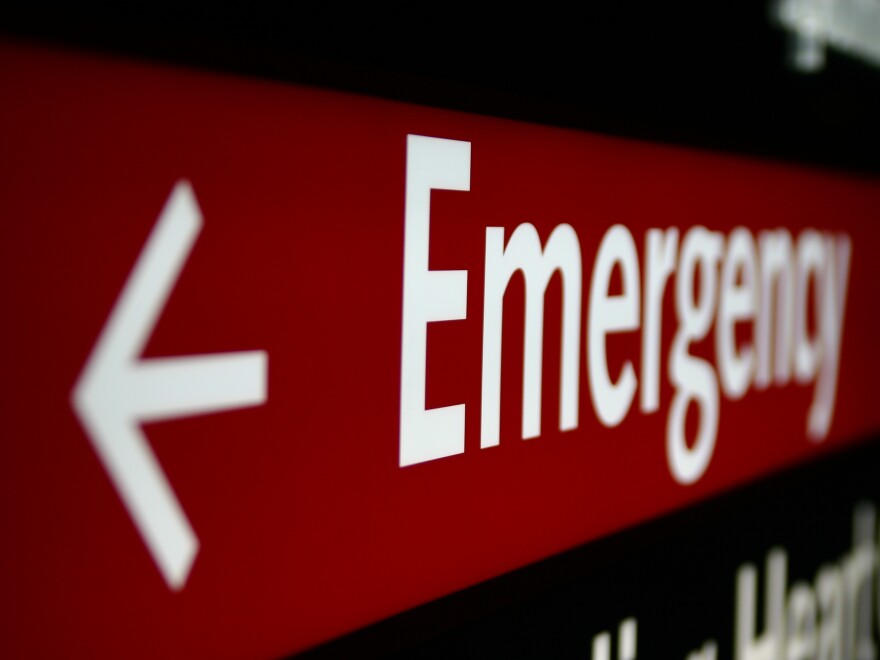A hospital worker donned an inflatable, air-powered costume to spread cheer in a California emergency department on Christmas Day.
But now, dozens of hospital staff members have tested positive for the coronavirus, and the hospital said the costume may be to blame.
Hospital officials said 44 staff members tested positive between Dec. 27 and Jan. 3 in the emergency department at Kaiser Permanente San Jose Medical Center. One emergency department worker who had a shift on Christmas died from COVID-19 complications.
"Any exposure, if it occurred, would have been completely innocent and quite accidental, as the individual had no COVID symptoms and only sought to lift the spirits of those around them during what is a very stressful time," the medical center's senior vice president, Irene Chavez, said in a statement to NPR. "If anything, this should serve as a very real reminder that the virus is widespread and often without symptoms, and we must all be vigilant."
Hospital officials are investigating "whether the costume, which did have a fan, was a contributing factor" in the outbreak, Chavez told The New York Times.
Air-powered costumes, like the one the hospital employee wore, typically use an internal fan to fill the suit with air like a balloon. The hospital did not specify what the costume depicted, but NBC Bay Area showed an image of a Christmas tree costume with a cartoon set of eyes, nose and smile.
The World Health Organization has discouraged the use of indoor fans when people outside of a single household are present. "Air blowing from an infected person directly at another in closed spaces may increase the transmission of the virus from one person to another," the organization states.
Chavez said the hospital is reinforcing safety guidelines, include enforcing mask-wearing and physical distancing and prohibiting gathering or sharing of food and drinks.
The medical center plans to test all emergency department employees and physicians for the coronavirus. Those who test positive or feel sick are told to stay home. Contact tracing is underway for those at the hospital, including patients. Health care workers will be offered weekly coronavirus testing.
The hospital is located in Santa Clara County, which has seen more than 74,000 confirmed cases and nearly 750 deaths. California, the most populous U.S. state, has had the most confirmed cases, with nearly 2.4 million recorded since the pandemic began.
More than 22,000 people were hospitalized in California because of the coronavirus as of Jan. 3.
In April, The Washington Post reported that some people were donning these types of inflatable costumes in lieu of masks in some public places, such as grocery stores. One popular variety was an inflatable T. rex.
A spokeswoman from the Centers for Disease Control and Prevention said at the time that it isn't a good idea to use such costumes as protection.
"While CDC appreciates the creativity that some Americans have shown in protecting against COVID-19," CDC spokeswoman Kate Grusich told the newspaper, "an inflatable dinosaur suit will not provide more protection than a cloth face covering."
Copyright 2021 NPR. To see more, visit https://www.npr.org.


